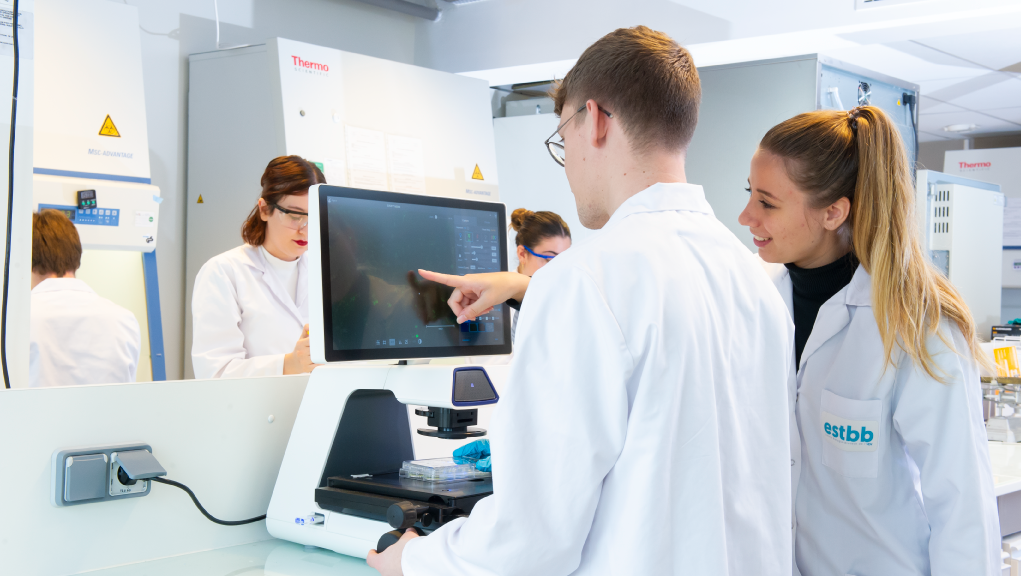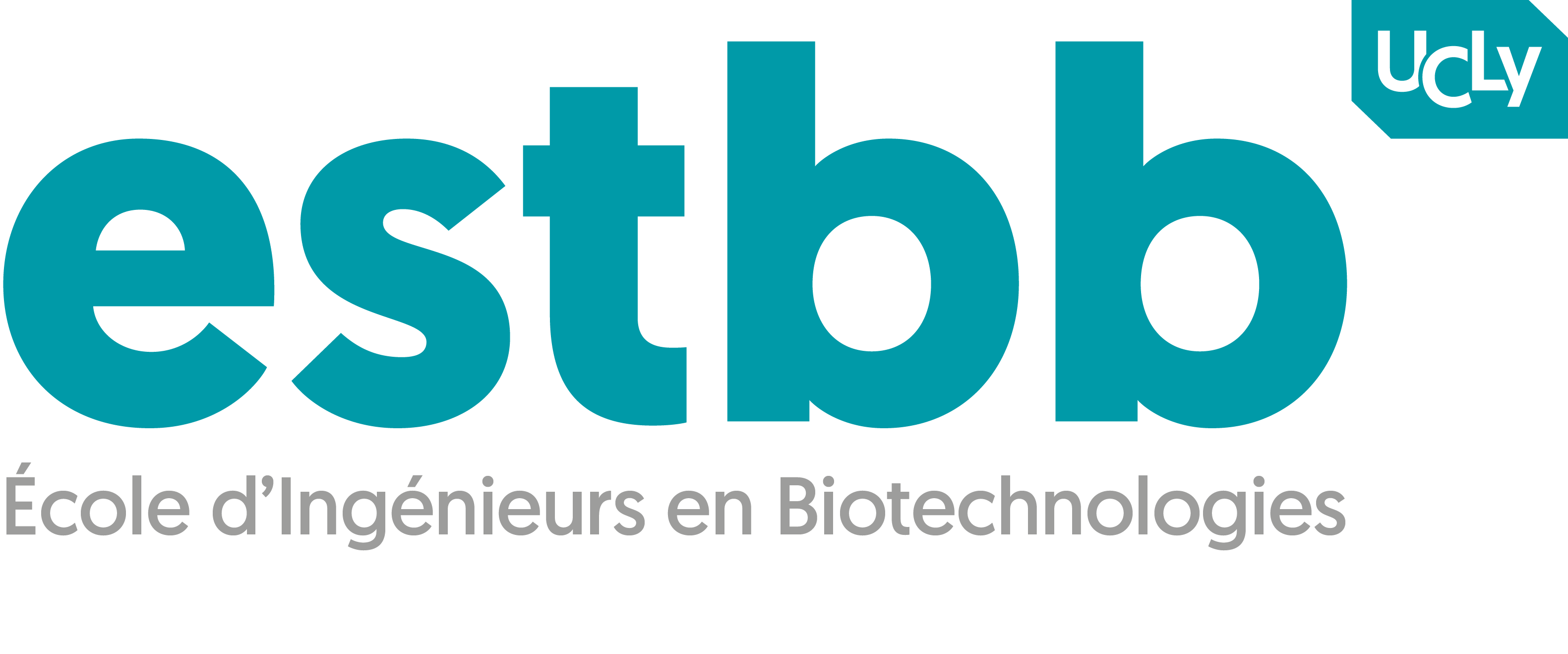
9 months
in company
54 %
of practical courses the 2nd year

Bachelor Assistant Engineer Biology-Biochemistry-Biotechnologies | Undergraduate
Full-time study
Sciences and health
A short professional training to prepare yourself for laboratory jobs, with many opportunities.
Discover our
Bachelor Assistant Engineer Biology-Biochemistry-Biotechnologies
Diploma awarded
“Assistant Ingénieur en Biologie-Biochimie-Biotechnologies”
Title certified by the State at level II (= Bac + 3 level), registered with the RNCP (National Directory of Professional Certification).
The training allows 180 ECTS.
Double degree possible
“Licence générale Sciences, technologies, santé ; mention Sciences et technologies ; parcours Biologie et Biotechnologies”
National Diploma issued by CNAM Rhône-Alpes.
Skills implemented by the Assistant Engineer
The Assistant Engineer in Biology-Biochemistry-Biotechnologies is a versatile senior technician in the different fields of life sciences (biology, biochemistry, bacteriology, virology, immunology, cell culture, process engineering …).
He is the direct contact for the engineer or researcher in the team. He is called upon to implement protocols to carry out analyzes and preparations, to analyze and manage the results obtained, to maintain the equipment in his laboratory, to manage stocks …
He must master the scientific fundamentals of his activity and implement them independently.
Employment
- 56% hiring upon leaving, 90% hiring after 3 months, 100% hiring within 6 months
- 96% hiring within the ESTBB network
- 22 to 25K € salary for the first job
Continuation of study
50 to 60% of each promotion continue their studies.
The training allows further studies. In addition, it is possible to validate in double degree “Biology and Biotechnologies”, to facilitate the pursuit of studies.
What further studies possible?
- Year 3 of the ESTBB “Biotechnology Engineer”, with a choice of 5 specializations
- Masters (in Life Sciences, Medicine Sciences – Health, Quality …)
- Other schools (agronomy…)
Missions in company
The course includes at least 9 months in business:
- Year 1: 1 month intership in laboratory optional
- Year 2: 4 months internship in a laboratory
- Year 3: 5 months internship in a laboratory or 7 months in a company (work-study program)
These two courses each have a fairly long duration, which allows you:
- to be entrusted with a real project (no observation internship)
- to go abroad for those who wish: almost 50% of BACHELOR students choose to do at least one internship abroad
Work-study program
Year 3 can be followed on a work-study program, the choice is made during the 2nd year.
Why integrate the Bachelor Assistant Engineer in Biology-Biochemistry-Biotechnologies?
Long internships, to be entrusted with real projects
15 teaching laboratories, with high-tech equipment
Small class, personalized follow-up, good professional integration right out
Discover the
program
detailed
Semester 1
Year 1 is devoted to the establishment of the scientific base and methodological tools for successful studies in higher education.
- Cell Biology
- Physiology-reproduction
- Genomics
- Biology of organisms
- Chemistry: structure of matter
- Analytical Chemistry 1
- Metrology, optics and mathematical tools
- Data processing and analysis
Semester 2
- Protein synthesis
- Heredity
- Genetic engineering 1
- Immunology – bacteriology
- Organic chemistry
- Analytical Chemistry 1 – biochemistry
- Thermodynamic
- Biostatistics – computer science 1
- Optional: internship in a lab
Semester 3
Year 2 is devoted to the acquisition of the profession in the laboratory, with 54% of TP in the year.
- Immunology for diagnostics
- Bacteriology 1
- Bacteriology 2 and antibiograms
- Structural biochemistry
- Enzymology
- Technologies in biochemistry
- Biostatistics 2
- Personal development
Semester 4
- Genetic engineering 2
- Cell culture 1 and Histology
- Metabolic biochemistry
- Computer Science 2
- Introduction to scientific research (project)
• English - Professional project
- Placement/internship in a laboratory (4 months)
It is possible to carry out this internship in an international partner laboratory.
Semester 5
- Developmental biology and applied immunology
- Cell culture 2
- Scientific written communication
- Introduction to business
- Bioinformatic
- Introduction to business: corporate knowledge
- Introduction to entrepreneurship
- English language
- Personal development
Semester 6
- Virology – cancer biology – genetic engineering 3
- Biology of the skin
- Bioinformatic
- Biotechnologies
- Bioprocesses
- Placement/internship in a laboratory
- Professional project
- Placement/internship in a laboratory (5 months)
It is possible to follow this semester in an international partner university.

